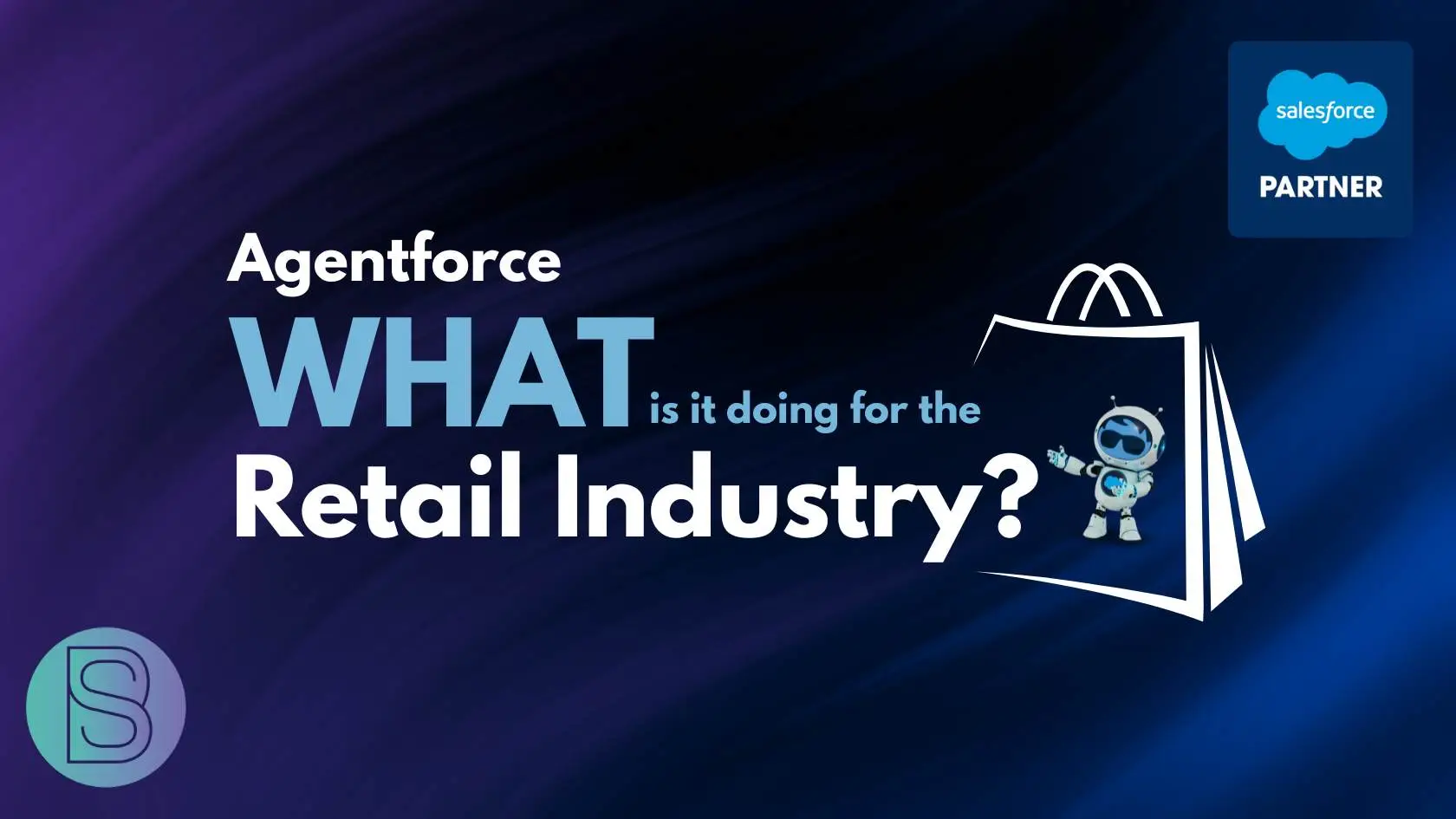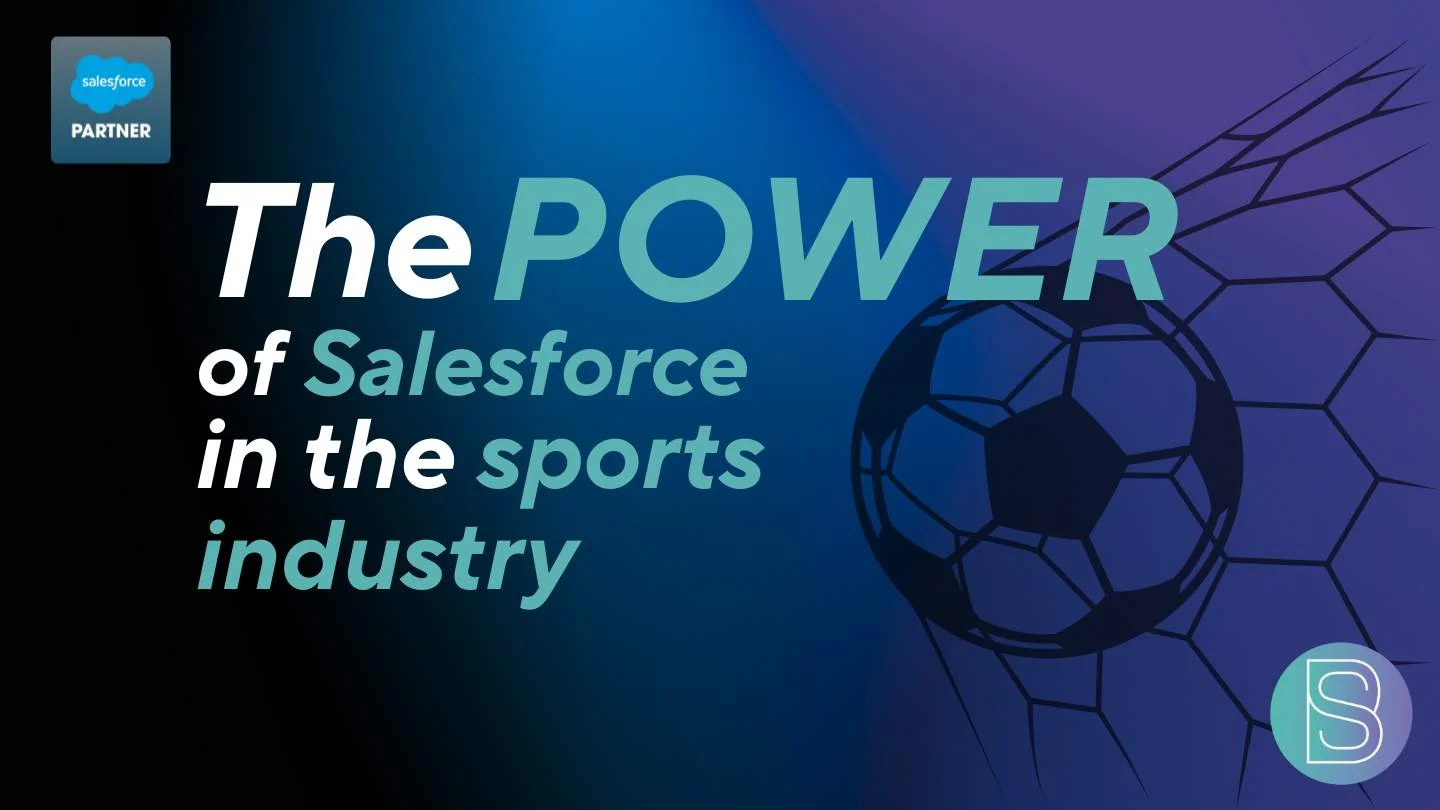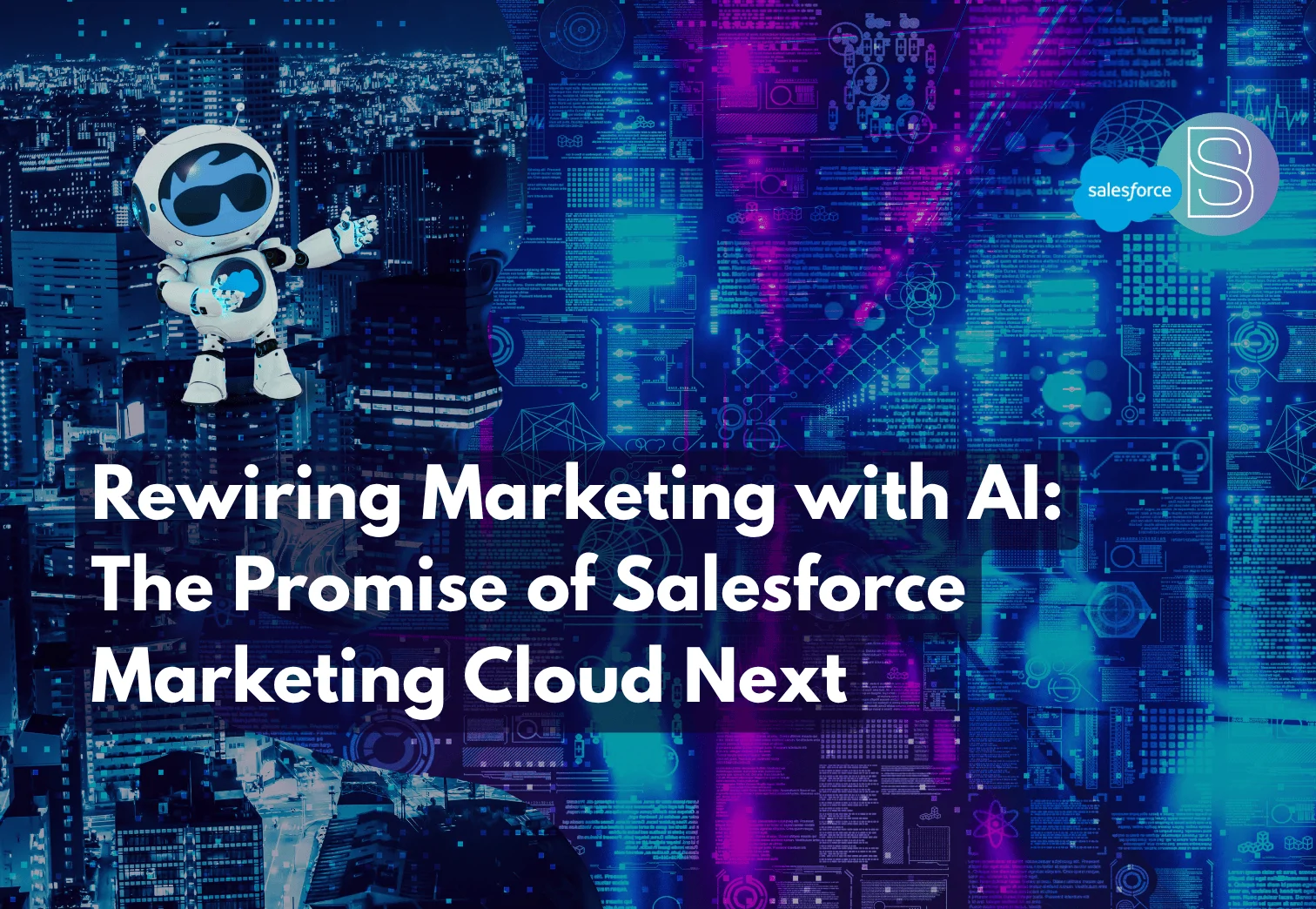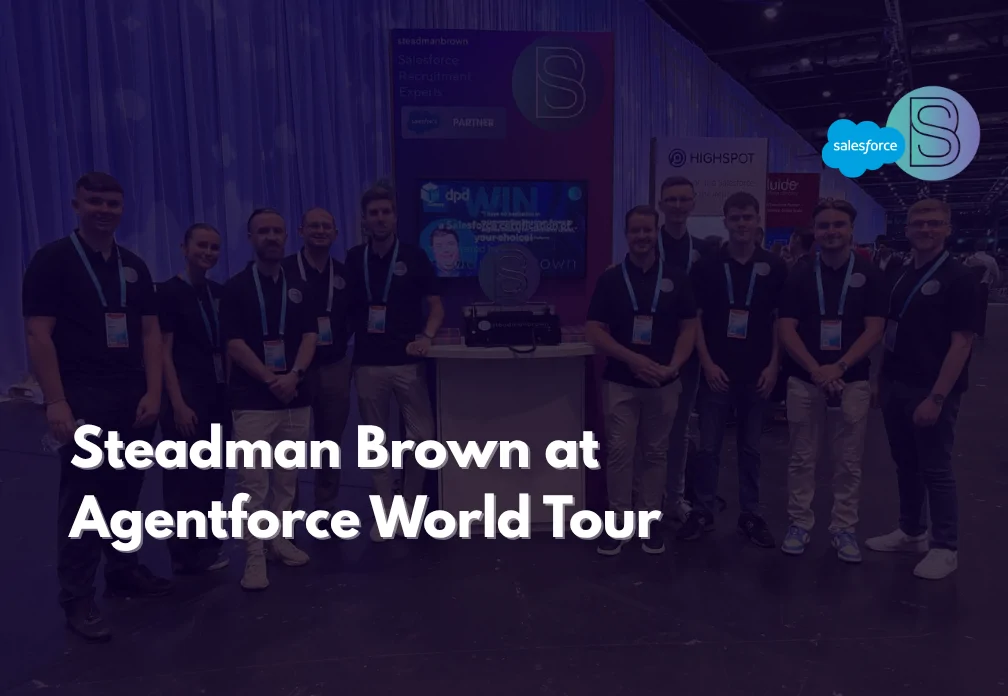
As the integration of Salesforce takes over yet another form of human entertainment, we delve into the why, how, and the what-ifs to help you understand how you’re watching your favorite match of the day, or what’s shaping your sporting experience. We explain how each ticket holder has gone through a personalised experience without even realising, through the power of the CRM. Don't believe us? keep reading to find out:
How is Salesforce integrated into the sports industry?
First of all, it's important to understand the reasoning behind how Salesforce can be used in the sports industry. In a sense there are similarities to retail, becoming aware of your consumer is key to sales and success. Therefore, a company attempting to sell tickets to fill a stadium, or convince you to purchase that luxury golfing experience, needs to implement strategies that align with their ‘target customer’. Salesforce’s product features are a perfect way to do this.
Here is why:
Creating that personalised experience is what keeps consumers coming back. Salesforce’s product suite means companies discover unique ways to tailor their customers' experiences. Agentforce especially works to make targeted sales campaigns a breeze. For instance, if you’re a sports venue changing your content towards different ticket holders, altering promotional discounts to the younger audience could create a rise in revenue, and this can be done right in the CRM. When Salesforce has access to your data, it can automatically identify the right customer to target offers to, automating your processes and essentially, your effort. This can be spread across a range of income opportunities.
Another feature to benefit the sporting industry, is the use of unified fan data; which essentially brings together data from different sources into a single view. Its purpose is to help companies understand their consumer behaviour on a deeper level. This not only helps you out in terms of data accessibility, visibility and ease to take action, but, your customer gets to feel individually catered for.
Now that you’ve gained meaningful insights into your fan base, teams can use Salesforce to experiment with different marketing strategies that they know their fans will love. This could include targeted promotions, social media posts, and new merchandise. Building that strong connection between fan and team player is crucial to success. Marketing and sales teams are able to use Salesforce to care for their repeat ticket buyers and prospects. This improves higher conversion rates and increase in sales; Teams are able to track, engage, and respond much more efficiently.
The in-person experience is just as important as the online. Creating a streamlined process here, from start to finish, is arguably the most vital part to meet your fans expectations, and ensure repeat purchase. “Smart venues” are events that Salesforce can digitally connect with. They are powered by analytics, customer service tools, and marketing automation, all to improve the quality of customer service. For instance, when this data is understood, venues can use it to shape how they sell their merchandise, whether that be at different times or areas. Salesforce can use real time monitoring, or crowd flow features, which aids experiences like queuing times or the service behind the food and drink they purchase. This also includes the digital download apps that may improve the service just enough, to convince that one customer to return!
Who is using Salesforce?
F1
Many sports companies are using Salesforce to improve the customer experience, Formula 1 being one of them. They are leveraging Salesforce's ‘Customer 360 platform’, which is helping them create a deeper understanding of their global fanbase and create that personalised experience that customers are longing for. F1 is aiming to design a “new era” of engagement, using new technology to strengthen the fan and sport connection. Did you know? Steadman Brown partnered with Formula 1 to build part of their Salesforce team! Learn more about what we do here: About Us | Steadman Brown
McLaren Racing
McLaren is also using Salesforce to connect with their customer engagement. Using Marketing Cloud to help send tailored and timely messages and alter the type of fan it's sent to. With Sales Cloud being their main product, they can understand their customer better with the use of data from different sources.
Tottenham Hotspurs
The football team Spurs is an official partner of Salesforce. Their goal is to enhance the digital interactions that they are having with their customer base. The Spurs stadium is now completely cashless. This not only supports a more seamless digital interaction, but now can also help collect more data to understand revenue analytics.
Risks?
With sporting communities holding a lot of personal traditions, its importance of authenticity is what long-lasting fans really love. Changing these experiences to generations of fans, especially those who’ve been used to a certain experience for a long time, may cause concern to the sports industry, and what it’s really about. Where promoting ‘premium experiences’ may overshadow the purpose of the beloved atmosphere, and doesn’t appeal to every consumer.
Like all data-driven events, privacy concerns are always a huge part of why the community may not be up for Salesforce’s more automated practice. Sports games and matches hold a lot of traditional values. Crowds are full of generational, loyal supporters, so it's important that the human touch is still followed throughout.
Conclusion:
Salesforce's integration into the sports industry has marked a major shift in the way we will now view our next match, or the steps behind purchasing our next ticket. Using Agentforce and products like Service or Marketing Cloud, Salesforce sports customers are able to adapt and personalise their experiences. When used correctly, we are able to create a sense of ease, allowing consumers to enjoy and have more time for what really matters. With sports being such a huge part of some of our communities, it's also important to understand that these enhancements are not there to take away from our experience, but to advance them.



